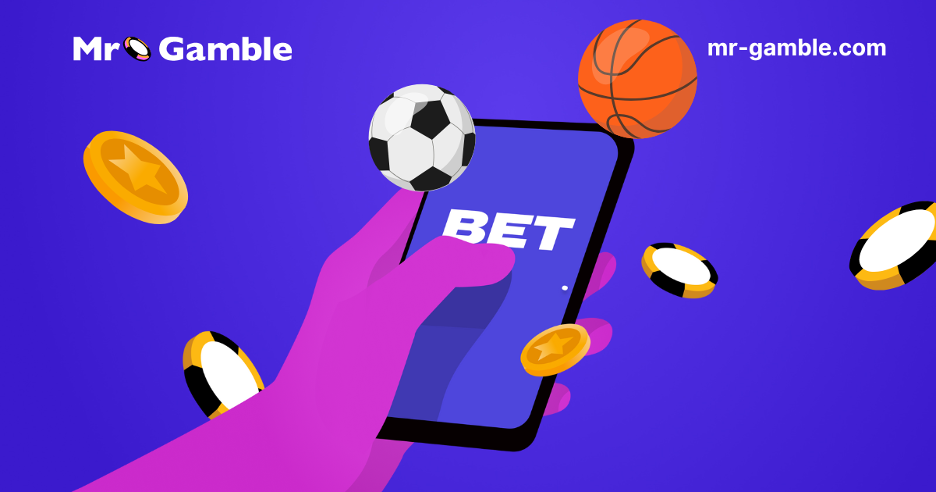Blockchain Betting Explained: From Bitcoin to Bots

With the emergence of blockchain technology came sweeping transformations across the internet, including in online betting. Decentralized platforms, crypto wallets, and smart contracts are leading the charge, rewriting the rules of gambling in the digital age. For bettors in the U.S., this evolution presents a compelling new frontier with fewer limitations, greater privacy, and lightning-fast payouts, especially on fast withdrawal betting sites.
Whether you're a seasoned crypto gambler or just exploring the concept, understanding how blockchain integrates into the betting world is essential. This article breaks down the essentials, from the rise of Bitcoin betting to the surge of AI-driven bots on Telegram casinos, and offers an expert perspective on where the trend is heading.
What is Blockchain Betting?
Blockchain betting involves wagering on games or sports using a decentralized ledger to record and verify transactions. Unlike traditional online casinos that rely on a central authority, blockchain platforms use smart contracts. These are self-executing programs built into the blockchain that automatically resolve bets and distribute winnings.
This system eliminates intermediaries, ensures transparent odds, and significantly reduces the risk of fraud or manipulation. Players fund their accounts with cryptocurrencies like Bitcoin, Ethereum, or Solana. Transactions are confirmed quickly through tokenized systems, often within seconds.
“The brilliance of blockchain is in its fairness,” says Alina Anisimova, Blockchain Betting Expert at Mr. Gamble. “It levels the playing field and hands control back to its users.”
Mr. Gamble is a trusted crypto casino comparison platform that helps users find the best deals and operators on the market.
Another key advantage is accessibility. Traditional platforms may block users based on geographic restrictions or licensing rules. In contrast, blockchain betting sites are typically permissionless, allowing anyone with an internet connection and a crypto wallet to participate.
The Benefits and Risks of Blockchain Betting
Before exploring blockchain betting in more detail, it is important to understand both the upside and the potential downsides.
Benefits | Risks |
Transparency: All transactions and outcomes are recorded on-chain and can be audited by anyone. | Volatility: Crypto prices can swing dramatically, affecting the value of winnings |
Privacy: No need to provide personal details or undergo intrusive KYC checks on most sites | Regulatory uncertainty: Laws surrounding blockchain betting vary and may evolve unpredictably |
Speed: Instant deposits and withdrawals, often within seconds | Scams and rug pulls: With low barriers to entry, some websites may not be legit |
Lower fees: Without middlemen, transaction and withdrawal fees are drastically reduced | Tech literacy required: Players need a basic understanding of wallets, private keys and crypto security |
Fairness: Many websites use provably fair algorithms that allow players to verify the outcomes themselves | |
Global access: Play from anywhere without worrying about geo-blocks or payment processors |
Blockchain betting offers major advantages but isn’t without risks. Scams, volatility, and regulatory grey areas mean players should research platforms carefully before participating.
Bitcoin Betting - Where It All Started
Long before smart contracts and Telegram bots, bitcoin betting paved the way for today’s crypto gambling revolution. Launched in the early 2010s, sites like SatoshiDice were among the first to offer provably fair games using Bitcoin as the only currency.
These platforms appealed to tech-savvy users looking for anonymous, fast gambling options. Players could send Bitcoin to a specific address and instantly receive results and payouts based on a cryptographic algorithm.
While these early platforms were basic, they were crucial in proving that blockchain could be used to build trust in a largely unregulated space.

Trends in Crypto Gambling
The blockchain betting industry has matured rapidly, with several notable trends shaping its future:
Multi-chain Support: Many platforms now support chains like Polygon, Avalanche, and Binance Smart Chain for faster and cheaper transactions.
DeFi Integration: Some sites double as DeFi finance hubs, allowing users to stake tokens or farm rewards while they play.
NFTs and GameFi: Gamified platforms offer NFTs as rewards or enable wagering in metaverse settings.
Mobile Optimization: More platforms are designed with mobile-first, crypto-native users in mind.
User experience has also improved dramatically, with sleeker interfaces, social features, and better customer support. Innovation continues to fuel the space. Bitcoin remains the most widely accepted currency across the top-performing list of crypto gambling sites.
Telegram Casinos and Bot-Powered Betting
One of the most fascinating developments in crypto gambling is the rise of Telegram casinos. These are chat-based platforms where users can bet directly within the messaging app using bots.
These bots offer games like slots, roulette, crash, and even sports betting, all without leaving Telegram. Players interact via simple commands, deposit crypto, and receive instant results in a private, encrypted environment.
Why are Telegram casinos gaining popularity?
Instant Play: No downloads or sign-ups. Just start chatting and betting.
Fast Transactions: Deposits and withdrawals are often powered by stablecoins or Layer-2 solutions for speed.
Community-Driven: Telegram groups foster tight-knit communities where users share tips, wins, and strategies.
“Telegram casinos represent the next wave of convenience,” says Alina Anisimova. “The blend of social interaction and instant crypto betting is incredibly sticky.”
Some of the best Telegram casinos in the crypto space offer generous sign up betting offers, rewards programs, leaderboard competitions, and 24/7 support. They can be even more dynamic than traditional casino apps.
What’s Next for Blockchain Betting?
The future of blockchain sports and casino betting promises further disruption. Here’s what to watch:
AI-Powered Betting Bots: Machine learning tools are being integrated to help users analyze odds and optimize bets.
Decentralized Sportsbooks: Community-owned betting sites may let users vote on odds and rules using governance tokens.
Cross-Platform Wallets: Unified wallets could make it easier to use funds across multiple games and sites.
Licensed Crypto Hubs: Regulatory bodies in jurisdictions like Malta and Curaçao are exploring how to license blockchain betting operations legally.
“In the next few years, blockchain betting will harness AI and peer-to-peer architecture to deliver smarter, fairer betting experiences for everyday users. Bettors will control their funds directly on blockchain platforms, and as regulators catch up with clear crypto-gambling laws, the entire ecosystem will become more transparent, secure, and widely accepted,” adds Alina Anisimova.

